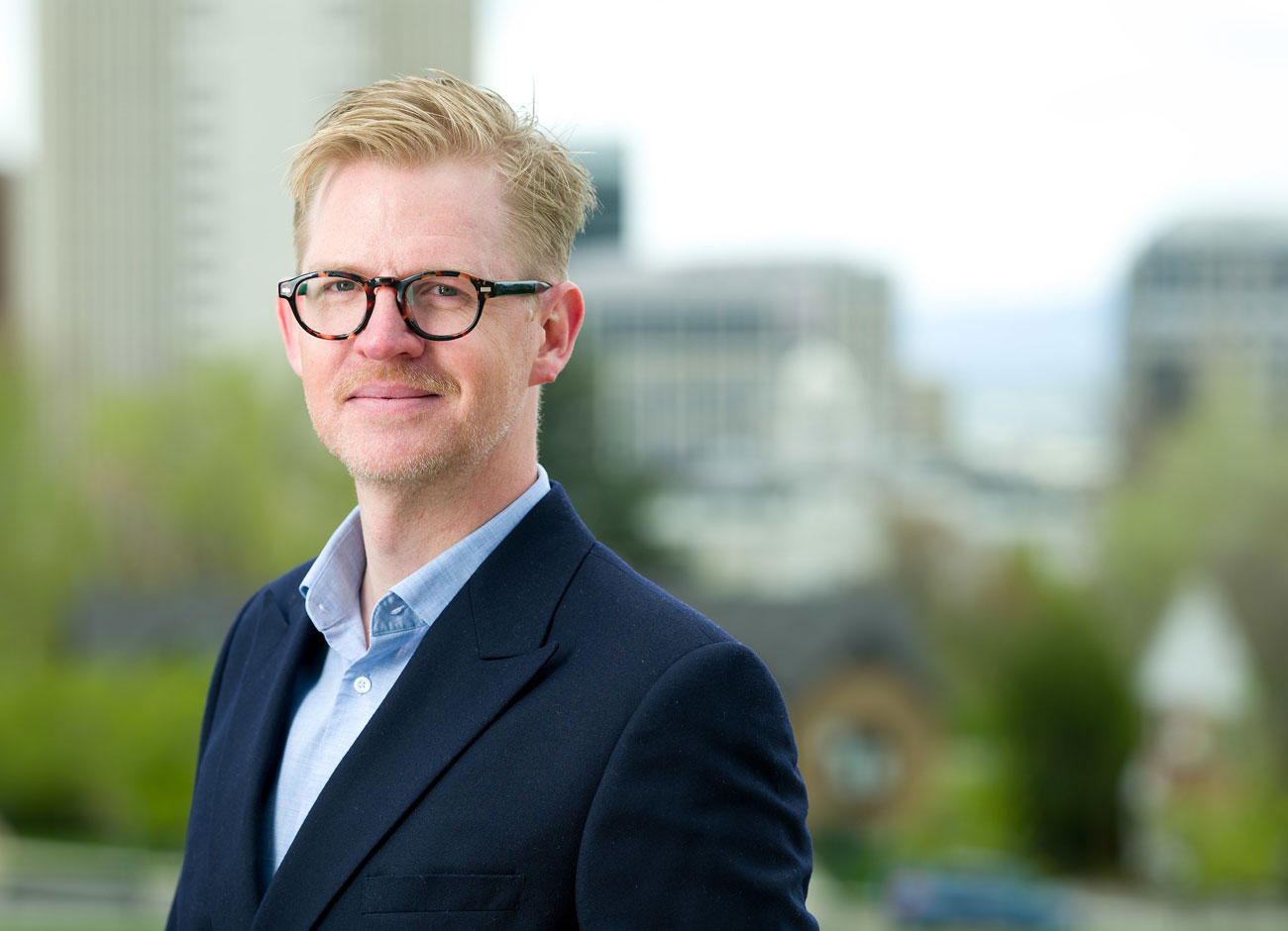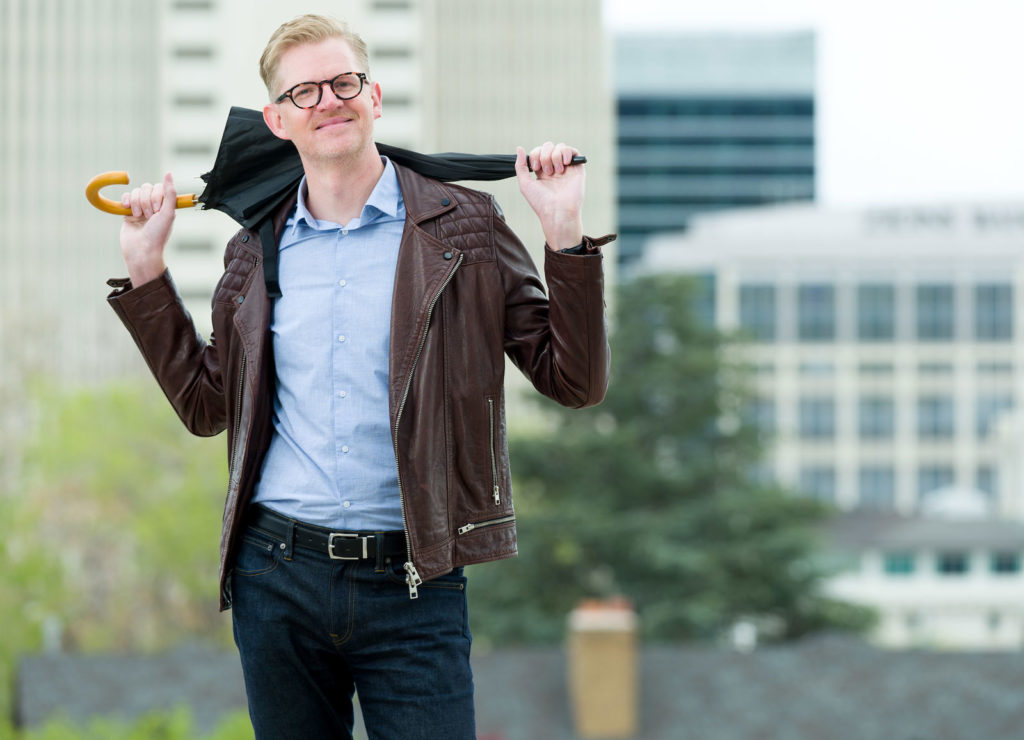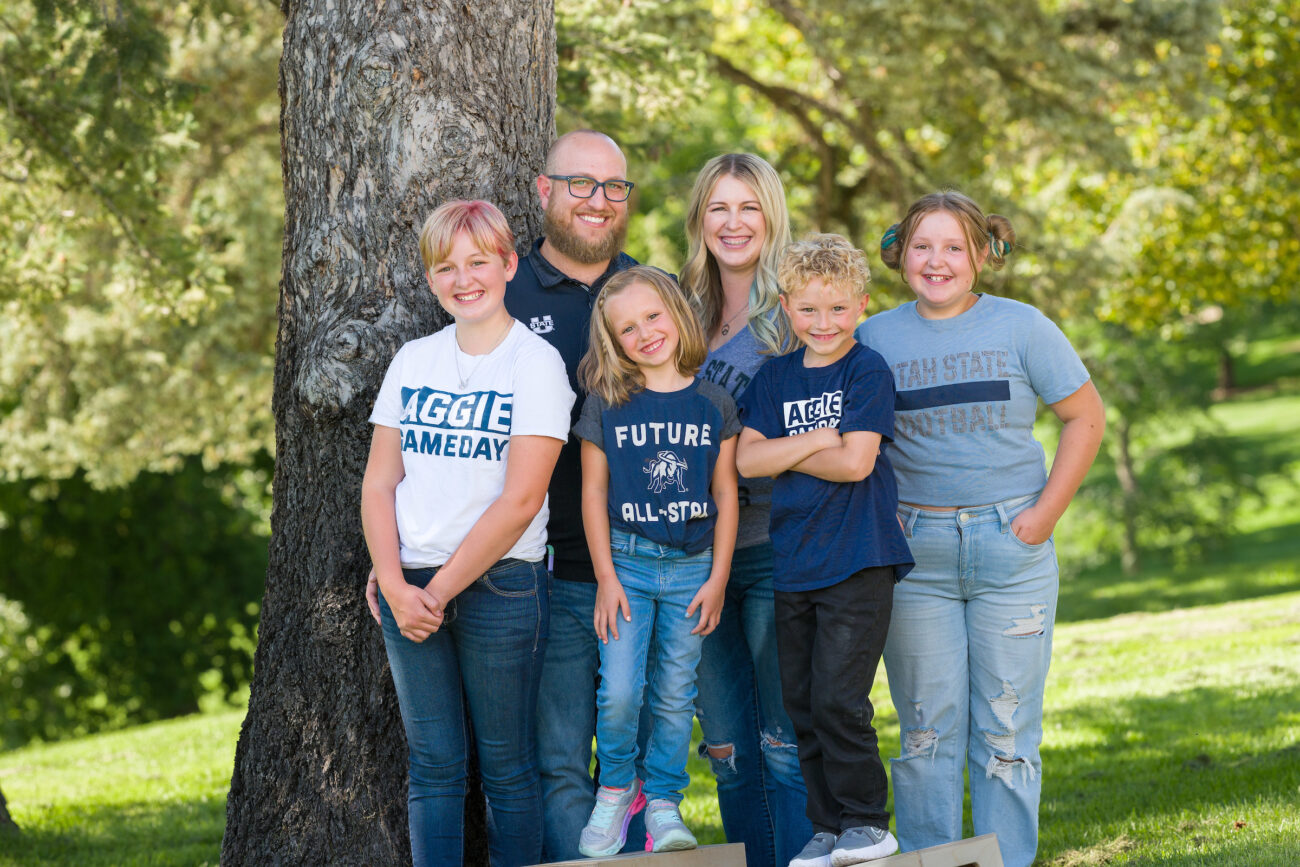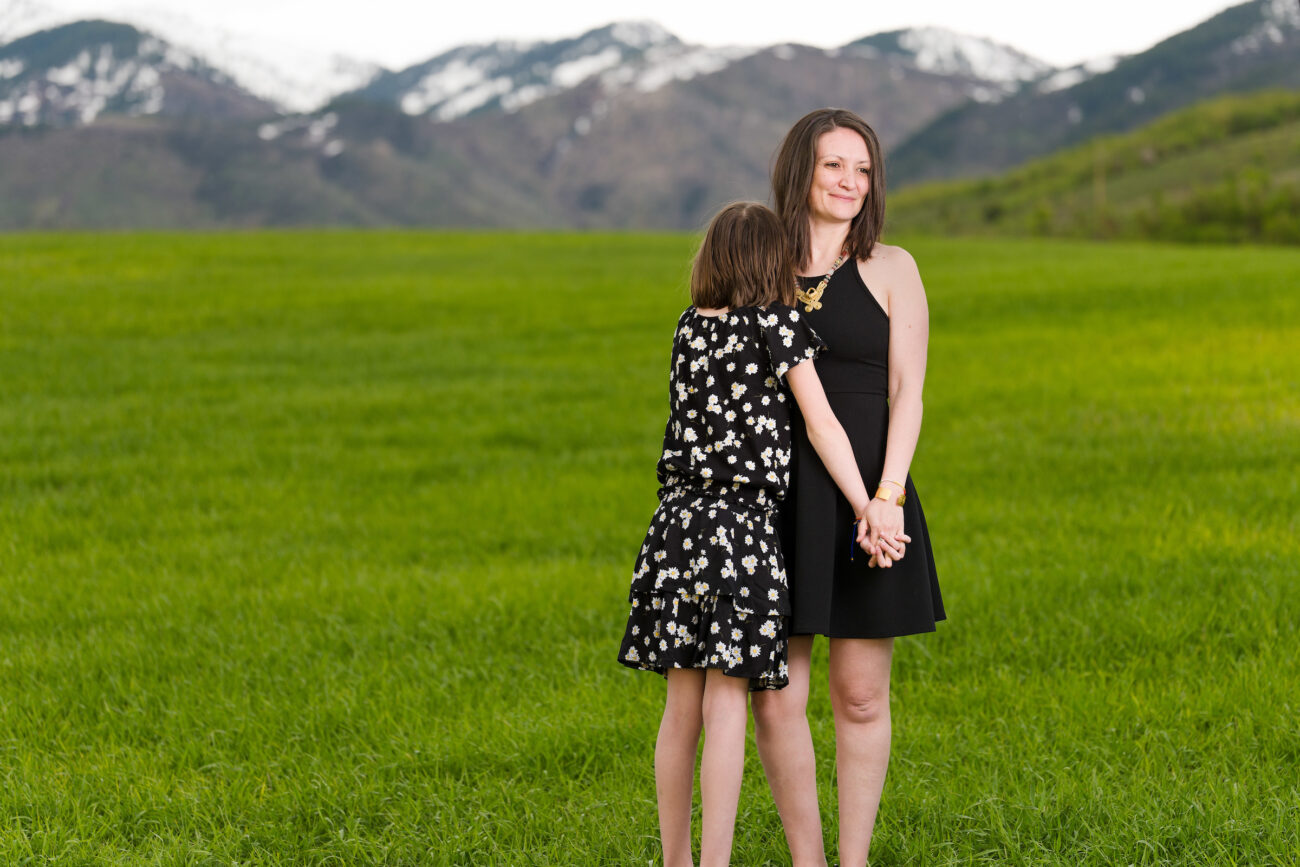Just Say “Yes, And.” Zachary Ames on Developing Your Talent

Zachary Ames is no stranger to global setbacks.
When he graduated from Utah State University in 2008, the country was in the midst of a recession not seen since the 1930s. Ames responded by methodically plotting how to find work in organizational development while waiting tables in Salt Lake City and stockpiling his earnings. He scrawled NYC at the bottom of each ticket to keep his internal compass set to New York City. And Ames didn’t give up on his ideal career after arriving in New York and folding sweaters for $10 an hour at Banana Republic to pay rent. He kept his dream alive by speaking it aloud to people he met and flipping every experience into a chance to learn his craft. After 15 years of coaching leadership and developing talent at companies, including Bloomingdales and Bloomberg, Ames launched his own consulting firm XYZ Leadership.
Here’s how he did it.
You majored in both sociology and economics at USU, trying to better understand the people part of the human resources equation. How did you know you wanted to do what you do?
Growing up I wanted to be a gastrointestinal pediatric surgeon, but through scouting and going to leadership conferences I learned that I loved not only learning but also teaching. While talking with an HR professor he said “Don’t major in HR” because that is the technical side of human capital in an organization. We didn’t have an organizational psychology degree, which is more of a direct link to what I do with executive coaching, so I built it myself. I joined activities boards, Greek life, and ran for student office to learn as much as I could about organizational behavior through experiences.
Two years ago, you were working in Singapore as a regional talent partner for Bloomberg and managing its leadership accelerator. How did you find yourself part of the great reassessment?
It was always a very long-term goal to be a consultant or a professor out of the corporate space. There were a lot of strings that braided the rope. I was re-evaluating myself and career opportunity within Bloomberg and it came to head with some mentors who said, “Trust yourself. You have got the experience. You know what you are doing.” I am also really in a lucky spot where I can take the risk. I currently don’t have a family and kids and, if this fails, the impact is really just on me.
There is this idea that no risk no reward. And if you are going to be open, you have to be open to failure. Does that square with your experience?
Risk is a subjective term. Everyone has a different risk tolerance. I am actually quite risk averse. When I was planning to start XYZ Leadership there were people selling courses on how to build a business but they didn’t have answers to my questions, which were all logistics and process. And I am not a logistics person. I am a creative, dreamer, big picture person. That is why I work in facilitation. I work in people. It’s not enough to say it just works itself out. I have been very lucky and strategic in the way I’ve built my business. Risk doesn’t have to be chaotic. Risk doesn’t have to be uncertain. You can reduce elements of the exposure of the risk even while taking the risk.
Can you give an example?
Before I moved, people would say “New York City is so expensive.” This perception was a barrier rather than an opportunity to break it down and ask, well, how expensive? What would it take to make that work? I didn’t deny the reality. That is why I didn’t just buy any random plane ticket on any random day. I worked all summer and put everything in savings so that I could get to New York and weather a few months without work on the other end. I prepared. I knew that I did have grit and resilience, but I also worked retail and I made it work. I got a really cheap apartment and made sacrifices.

Now with my business, I get to select the clients I get to work with, I get to decide the impact I get to have. I get to balance my schedule. We often think so much about the risk that we don’t think enough about the reward and bringing curiosity to it — how do I make that work? I have built myself up almost like a stock portfolio and I am hedging against risk with multiple channels of work. Over time I hope my portfolio balance will shift. Some people will tell you the exact opposite — go all in that you can’t fail because there is no plan B. I am not comfortable with that. Know yourself and then plan for it.
It’s one thing to have dreams. It is another to follow through on them.
Our brain is built to keep us safe, which means it keeps us comfortable. And we often forget how adaptable we are as humans. Starting a business or leaving a job is always weird because we are the ones creating to the change to and for ourselves. Yet, we often are willing to let other people make the changes around us in our lives.
When you first moved to New York you joined a volleyball league and did speed dating. But you also joined an improv group and learned the value of saying yes, and to any situation. Should this be a required class so people practice being uncomfortable?
Yes. It is one of the best tools and experiences you can have. Painted on the wall of my improv group was feel the fear and do it anyway. Fear is going to be an emotion that exists. It tells you that what you are about to do is either scary or risky or important, but it doesn’t mean it’s accurate. We often let that feeling stop what we are doing and idolize people who have made it to whatever terrain we want to be in as having this combination of things that we don’t. And that’s not true. The big difference is they don’t let their fears dictate who they are and who they want to become. Improv is not like being an actor where you memorize some lines and hit the spot. There isn’t a perfect script. That is life. I think that’s why improv is so powerful because it’s actually an everyday skill of ‘how do I show up, how do I contribute, and how do I show up for my team and trust that they are also taking care of me’? Giving up perfectionism and trusting in the skillset and the practice will take you much further over time.
For many people who suddenly shifted to remote work during the pandemic, they saw coworkers as people with complete lives. How will that trickle down, or I suppose trickle up, into leadership?
I think it’s two-way. We also got an insight into our leaders. I think it created massive empathy in a way it didn’t before. Before COVID-19, it was easy to just expect some things from your people. When you are high up in the ranks you sometimes forget what is happening behind the scenes. And it’s not that you saw it with other people during COVID-19, it’s the fact that now you have to pick up your kids from school, and it’s your dog barking in the background, and you don’t have the right technology in the home either. I think flexibility is here to stay. But we are only talking about a certain segment of the workforce. We aren’t even touching on people in a service-based industry where you are client facing.
Do you have advice for leaders to meet this moment?
It goes back to the idea of ‘Yes, and’ a little about adaptability. Everything is changing so rapidly there is no way you can, could, or should know everything and so trust yourself and your ability to figure it out. And in that same vein, you can’t then rely on all of your people to have it all figured out. Consider how to partner with people to give them the space and grace to grow and develop and explore. The great leaders of the next generation are the ones who are willing to be curious and to learn. It doesn’t mean don’t have a vision or point a view, but you don’t have to know every single step of the way.
What did you learn from the pandemic?
Learning that people, including myself, are resilient and adaptable and we can do great things in the face of change. This is one change that we were all forced into and we learned a lot about ourselves and I am really curious about what we do with that. If we don’t take the lessons out of it, and mine the gold out of it, it’s a wasted opportunity.
By Kristen Munson
Zachary Ames is the founder of XYZ Leadership, a leadership and talent development firm that works with organizations of all cultures and sizes.
Photos by Levi Sim





